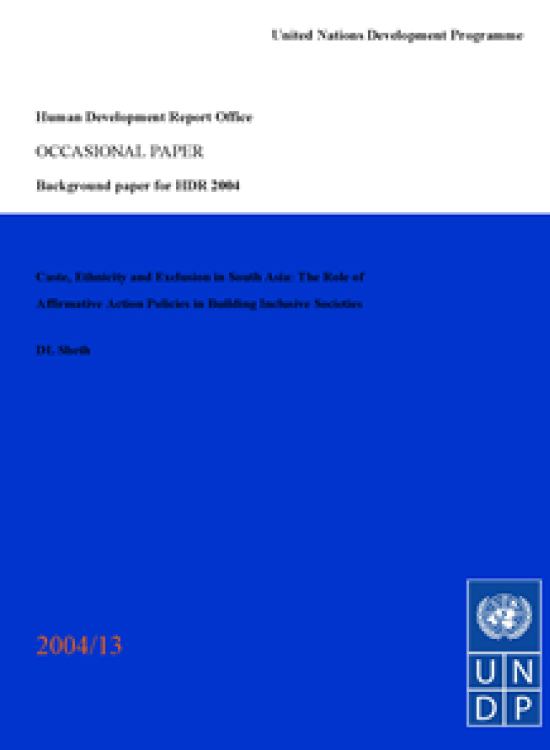Caste, Ethnicity and Exclusion in South Asia
The Role of Affirmative Action Policies in Building Inclusive Societies

Download Report by Language
Document
hdr2004dlsheth.pdf
(535.11 KB)
Citation
Sheth, DL. 2004. Caste, Ethnicity and Exclusion in South Asia: The Role of Affirmative Action Policies in Building Inclusive Societies. New York.
Caste, Ethnicity and Exclusion in South Asia
The Role of Affirmative Action Policies in Building Inclusive Societies
Posted on: January 01, 2004
The kind of social inequality and exclusion that exists in different South Asian societies, exhibits some common cultural and social structural characteristics, in some respects quite distinct from many other societies in the world. The distinctiveness is on account of the stratificatory system of caste that prevailed, in one form or the other, in these societies for centuries. Despite some basic differences in the political and religious organization of these societies, caste or caste-like institutional practices survive in them even today—in diluted or even transmuted form in some, while manifesting greater continuity in others—with their corresponding structures of social exclusion.